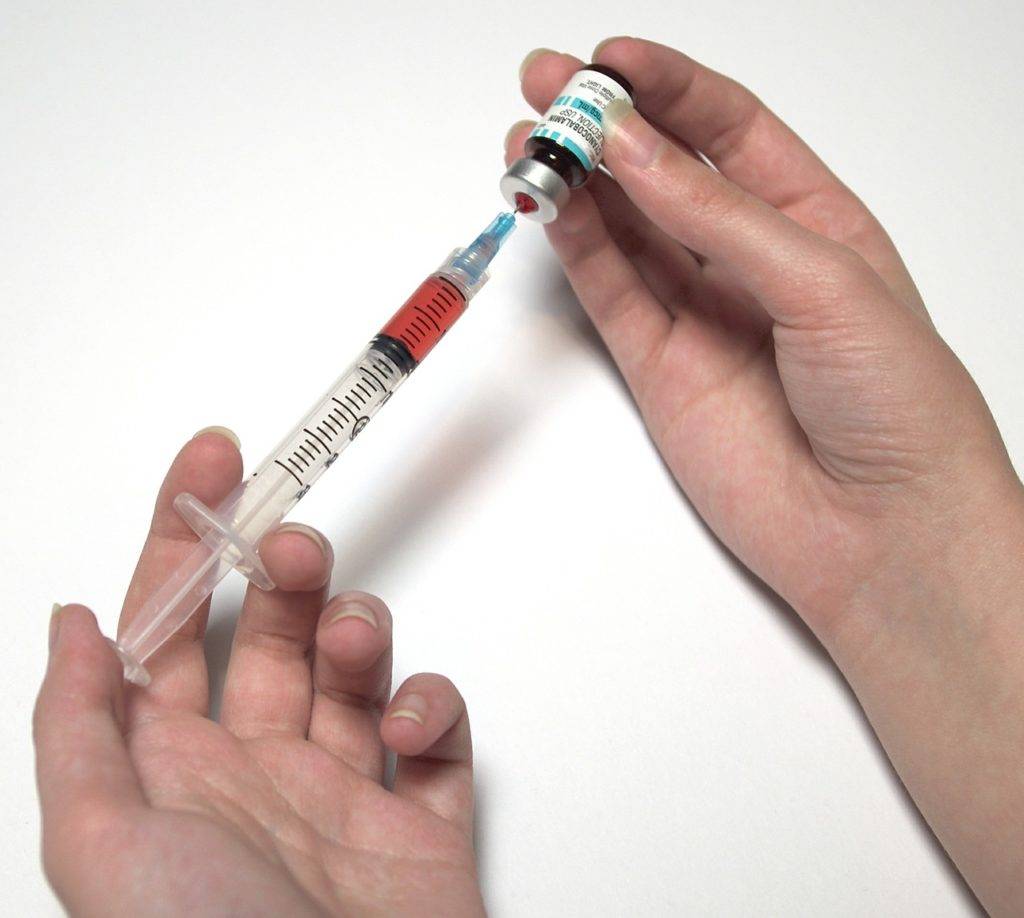Pediatric vaccinations have done a great job that we hardly witness those gnarly diseases that used to mess kids. But you may be wondering if your child really needs those shots.
You might have searched for answers online, but beware of those sketchy claims about vaccine risks. Most stuff isn’t just spurious, but it’s also hella scary and has made some parents hesitant about vaccinating their kids.
Indeed, science and research have made breakthroughs. Vaccines can indeed save lives. Don’t let myths get in the way of keeping your little one healthy.Your child’s pediatrician is best suited to explain everything you need to know about vaccines……not blogs all over the web that just want to sell something or two to you, have you keep visiting their website, liking their posts and following them on social media. There is a whole lot more to it. It is your child’s life, you know.
How Vaccines Protect Your Child and the Community
Protecting Your Child from Viruses and Bacteria
Vaccines are like superheroes that protect your kids from viruses and bacteria that are lurking around our country and also globally. These helped eradicate dangerous infectious diseases.

But, there are still ailments on the loose like measles in some parts of the world and I dare say everywhere now with how people move around. With such riskis, the unvaccinated children are sitting ducks. Chickenpox is another disease that seems harmless but those unvaccinated may suffer from life-threatening complications.
Yes, even the healthy ones. There are even those that no longer make it after. Others encounter life-long health problems. So even if viruses and bacteria are unpredictable, you can help take control of the situation with available vaccines today.
Since you cannot predict what diseases your child may come across, have peace of mind when they are vaccinated.
Protecting Your Child from Invasive Medical Tests
These tiny but mighty vaccines help train your child’s immune system to identify and fight harmful bacteria and viruses that can cause all sorts of illnesses.
This means fewer nasty medications and procedures like antibiotics, and invasive medical tests, hospital stays, and even surgeries. For example, the pneumococcal vaccine has reduced life-threatening diseases related to this type of bacteria by 99%!
Another is the Hib vaccine which has reduced cases of meningitis, eliminating the need for spinal taps for babies. This only means that with your kid getting their shots, they are not only protected from the disease but from harsh treatments too.

Protecting the Community
Parents want their kids to be safe and one way to foster this objective is to ensure that they get their shots at the right time. If you do, you are also helping your area attain herd immunity from certain diseases, thus, preventing an outbreak.
To know the immunization status of the children in your area, you may refer to AAP’s publication. From there, take the necessary actions and share your thoughts on how vaccines can help all of you. You can also collaborate with your pediatrician.
With herd immunity in your community, even the vulnerable group, such as pregnant women, the elderly, as well as the immunocompromised ones who cannot get vaccinated, are all protected.
Know Your Kid’s Vaccines
The AAP recommends that kids get vaccinated against a bunch of serious diseases.
Hepa B
This is the first vaccine that babies get, as early as the first 24 hours of life. Your baby will need another dose by 1-month old and then another at 1-year old. Why so soon? Because of the long-term infections brought about by Hepatitis B.
There’s also a great chance that babies infected by Hepa B will develop cancer later. Your baby may even catch it from people who don’t know that they are infected.
The vaccine is highly safe and effective at protecting your little one from this infection. So let’s give them a healthy start from day one.
DTap
Did you know that kids get 5 doses of the DTaP vaccine? This super vaccine protects against three serious illnesses:
- Diphtheria, a dangerous throat infection that could cause serious breathing problems and even heart failure.
- Tetanus, a nasty bacteria that can be found anywhere on earth, including soil. It can enter your body through a cut or wound, causing severe muscle contractions, including lockjaw.
- Pertussis makes breathing difficult due to cough. What’s worse is that your baby may even be hospitalized.
When there was no DTap, one in every five children died from this infection. Now, this figure has changed, thanks to the vaccine developed.
Hib
Several illnesses can be prevented by around three or four shots of Hib. Ear and lung infections, even life-threatening conditions such as meningitis have no power if your child gets this shot. Else, you’re risking your baby having to undergo a spinal tap test.
IPV
The polio vaccine is highly important. Polio is a disease that can paralyze your child or even cost them their life. However, with four doses of IPV, you can prevent this from happening. With the vaccine, polio cases have drastically decreased, though there are still recorded cases.
Pneumococcal Vaccine
Did you know that the Pneumococcal vaccine (4 doses) is a superstar? Streptococcus pneumoniae causing pneumonia, sepsis, meningitis, and ear infections will be defeated by this vaccine. The number of kids developing these illnesses has dramatically dropped.
Rotavirus
Say hello to the Rotavirus (RV) vaccine, the super-duper, tummy-protecting vaccine that’s a game-changer for tiny tots! This bad boy puts the kibosh on the leading cause of diarrhea in kiddos, which spreads faster through toys and soiled diapers
Aside from diarrhea, the symptoms could be tummy aches, vomiting, and fever. Heck, it can lead to dehydration and puts your little munchkin in the hospital. But with this nifty vaccine, you can say goodbye to those nasty symptoms and hello to happier, healthier days ahead!
MMR
Your kids will get two doses of the MMR (measles, mumps, and rubella) vaccine. They may need three doses in cases of disease outbreak. It’s like a super shield against three serious illnesses that can really wreak havoc on their health:
Fever, cough, runny nose, and pink eye are unpleasant symptoms of measles. You should be more concerned of its serious complications such as seizures or ear infections.
The symptoms of mumps include swollen salivary glands that come with fever and headache. Often, it also comes with muscle aches and tiredness. But the more serious ones are deafness or brain swelling. We definitely want to avoid that!
A pregnant woman catching rubella can have a miscarriage. For your kiddo, rubella can lead to swollen lymph nodes which can be quite hard to deal with. Have peace of mind knowing that children who get MMR shots are protected for life.
Varicella
Two shots of this vaccine is necessary for your child to avoid getting the itchy blisters that come with the virus. If you are wondering, varicella and chickenpox vaccines are the same. With the shots, your child gets protection while helping the spread of the disease.
Hepa A
Your child needs two shots in a 6-month interval. Same as the MMR vaccine, this shot affords lifelong protection, particularly from serious liver disease. Even people who don’t show symptoms can spread this virus easily so this is a big deal to your child’s health.

Addressing Parental Concerns with Your Pediatric Doctor
The health of your child is very important, not only to you but also to your child’s doctor. For this reason, put your trust in your child’s pediatrician and get facts only from them. Don’t let what you read online scare you or influence your decisions.
Vaccines work like a charm.
For decades, they have been keeping children healthy and saving lives. If a vaccinated child gets sick, the symptoms are milder compared to the symptoms experienced by a child who didn’t get the shot. Even the side effects will be mild, going away immediately.
Vaccines are as safe as hugs from grandma.
Vaccines aren’t given without a test and approval process. This means that the likelihood of side effects are minimized, proving that the shots are safe and effective before being administered to the general population.
Vaccines are like a superhero for your immune system.
Your child may have an excellent immune system. However, this doesn’t mean that they no longer need to get the shots. The vaccines teach your child’s immune system on how to fight infections until they get older.
Vaccines are necessary for all superheroes.
All recommended childhood vaccines are good for your kid. Your pediatrician will encourage you to allow your child to get the shots. Your child isn’t the only one protected when you do, but the entire community too.
And if everyone gets vaccinated, it creates herd immunity, which protects those who can’t be vaccinated.
Debunking Common Myths About Vaccinations
Trying to figure out what’s best for your child isn’t easy, especially vaccines. But don’t get easily swayed by what you see online. Often, posts on social media aren’t even fact-checked. So don’t take them as the gospel truth about your baby’s vaccines.
Plus, those sneaky social media algorithms promote stuff that’s popular, so when you click on one false post, you fall down into a rabbit hole of fake news without realizing it! It’s like falling into a trap.
Those posts seem legitimate and convincing to parents who are considering having their children vaccinated. So, parents, only get your information from experts.
Vaccines and Autism Spectrum Disorder (ASD)
A doctor once published a paper linking vaccines to autism. That paper was based on some seriously bad science. It got discredited, and the journal retracted it. But the result is that it planted fear among parents, considering that the author was a doctor.
This is why several investigations were done to confirm the link with thousands of children being involved in the studies. In conclusion, no causal association to link vaccines and autism.
Vaccines and Mercury Content
Thimerosal, a preservative, was already added to vaccines in the 1930s to prevent germs from growing within the shots. However, people feared that this additive would pose harm to humans, causing nervous system problems.
Thimerosal is different from the element in fish that make people sick, plus years of research showed no direct link between this preservative and neurological problems. This preservative hasn’t been used in children’s shots since the early 2000, perhaps only in flu vaccines.
Vaccines and Sudden Infant Death Syndrome (SIDS)
Newborns typically get many shots when they reach two months, continuing until four months and beyond. It is also at this stage when risk of SIDS is the highest. Thus, some parents think both are connected. Conversely, science proves otherwise.
In fact, getting vaccinated may even help prevent SIDS. Importantly, AAP recommends a safe sleep environment for babies to help prevent SIDS.
Follow The Pediatrician’s Advice: Have Your Child Vaccinated
Vaccines are superheroes, but not the antagonist. Ensure to learn from credible sources and the expert, your child’s pediatrician. Avoid sketchy sources that only intend to spread misinformation.
If you allow your child to get the shots they need, you are giving them a better chance of living a healthy life. We’ve got decades of research, and it’s in millions of children, that tells us vaccines work best at certain ages and with some space between doses.
Follow the recommended vaccine schedule for your little one to protect them, and others in your community. We at Omega Pediatrics are your partners in keeping your child in their best health. Let’s work together! Schedule an appointment today.



